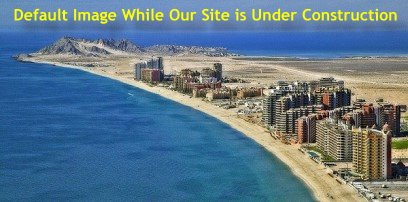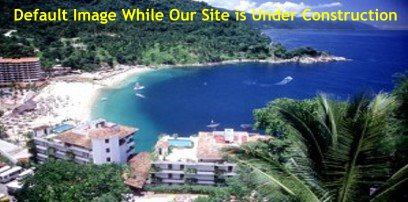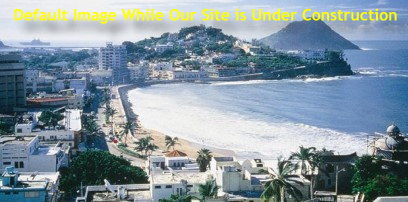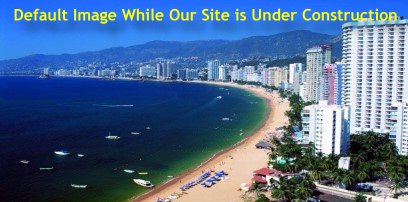 Featured Hotels
Featured Hotels

"BOUTIQUE HOTELYEAR BUILT 1986 YEAR REMODELED 2003ADDITIONAL PROPERTY DESCRIPTION CHROMATA OFFERS A BEGUILING COMBINATION OF UNIQUE ARCHITECTURAL STYLING, HIP ROOMS AND AN AWE INSPIRING VIEW OF THE MIGHTY VOLCANIC CALDERA."

"The Apollonia is a sprawling, three floor resort hotel, built observing the traditional Cycladic style, located next to the beach and four kilometres from Mykonos Airport. The 36 air conditioned guestrooms are decorated in earth tones and extend onto balconies with views of the sea. All include satellite television, CD and DVD players, wireless Internet connections (surcharge), direct dial telephones and minibars.
Sun worshippers can bronze themselves on sun loungers by the outdoor pool, and complimentary sun chairs and umbrellas are provided on the beach. Those in need of some pampering can enjoy a range of treatments in the mini spa, indulge in a massage, or unwind in the sauna, steam room and hot tub. Health consious guests can work up a sweat on cardio vascular and resistance machines in the fitness centre. At mealtimes, diners can enjoy Mediterranean specialities by candlelight, accompanied by views of the sea, in the Kynthos restaurant, or sample traditional Greek fare in the grill restaurant. The hotel's conference room can accommodate meetings of up to 30 people, and audio visual equipment is available on request. Guests visiting on business will find a range of office support services available on site, and can stay connected via complimentary wireless Internet access. Multilingual staff at the 24 hour front desk can provide around the clock hour room service for guests who wish to dine in their room, offer advice on sightseeing opportunities and arrange excursions. Other amenities include dry cleaning and babysitting services, currency exchange and a safe deposit box. Motorists will find complimentary parking facilities on site. Adventurous guests can try their hand at a range of water sports, including scuba diving, windsurfing and jet skiing, at the adjacent beach. The narrow streets, craft shops and market stalls of Mykonos Town are three kilometres from the hotel. Mykonos Airport is four kilometres away, with an approximate driving time of 15 minutes."

"Location. The Elounda Beach Hotel and Villas is located in Elounda, Crete, Greece. Set on the beach, it is seven kilometres from Aghios Nikolaos Port and 13 kilometres from the Lato Ruins.
Hotel Features. This luxury resort complex, made up of guestrooms and bungalows, includes a health club offering fitness equipment, exercise classes, and spa services. After relaxing with a massage or facial, guests can swim in the heated outdoor pool. Shopping is available on site, and high speed Internet can be accessed in public areas. Parking is complimentary.
Elounda Beach Hotel and Villas boasts many different restaurants. These include the Dionyssos A La Carte Seaside Restaurant, serving traditional Greek dishes, and the Blue Lagoon Polynesian Restaurant. Guests can also sample various wines in the pool bar, or enjoy cocktails and listen to the DJ in the Veghera Jetty Bar. Complimentary buffet breakfast is served daily.
The complex houses banqueting suites and a conference centre for up to 600 people.
The nearby beach offers activities such as surfing and water skiing. Guests can also enjoy snorkelling, scuba diving, and basketball. A children's playground is available on site.
Guestrooms. The 255 guestrooms and bungalows have contemporary furnishings and balconies. All include satellite television, air conditioning, minibars, and Internet access.
Additional information:
Please note: A city tax is applicable to all bookings in some Greek destinations; this charge is not included in the rates and is payable locally."

"Location. The Hyatt Regency Thessaloniki is located three kilometres from Makedonia Thessaloniki International Airport and 13 kilometres from the city centre of Thessaloniki, on Greece's mainland.
Hotel Features. This modern three storey hotel is built in a combination of traditional Greek and contemporary styles. Massage treatments, a sauna, a steam room, a spa tub, fitness equipment and an indoor swimming pool are all available. There is an outdoor swimming pool with a sun terrace and poolside bar plus a children's pool. The hotel has two floodlit tennis courts and an air conditioned squash court.
Ambrosia Restaurant serves a Mediterranean menu with Greek influences in a contemporary setting with a terrace overlooking the swimming pool and gardens. The Ocean Pool Bar & Grill is open during the summer months and serves Greek and Mediterranean specialities. Bar Aficionado stocks a wide range of premium cigars, cognacs and whiskies. The Lobby Lounge offers speciality teas and coffees.
Business services include photocopying, faxing and printing, secretarial services are available and there are meeting and conference facilities.
Multilingual staff at the 24 hour front desk can offer currency exchange and the use of a safe deposit box and 24 hour room service is available. The air conditioned public areas have high speed wireless Internet access (surcharge) and complimentary parking is available. The hotel provides a free shuttle service to the airport and to the Regency Casino.
Guestrooms. The 152 guestrooms have light decor and modern furnishings with traditional Greek styling, and open onto balconies. All are equipped with satellite television with pay movies and Internet access, climate control, and high speed wireless Internet access (surcharge). Other standard amenities include safes, minibars, and desks. Bathrobes, slippers, hair dryers, and makeup mirrors are all provided.
Expert Tip. The White Tower, 12 kilometres from the hotel, was built in the 16th century"
Business Hours
Shops: Shopping hours in big towns and cities start at around 10 or 11 am, and continue through to between 8 and 10 pm. Shops in cities and big towns are open 7 days; smaller places may close on Sundays, except tourist spots at high season. Public holidays are observed but you may find most things open in cities and bigger towns and tourist spots. Smaller towns will have more limited opening hours, and in hotter, non-tourist regions may close between 2 and 4 pm. Check locally.
Banks: Bank Branches are ggenerally open from 9am to 4pm in many cities and big towns, and some even open Saturday mornings. Global banks such as HSBC now open from 8am to 8pm six days a week.
Office Hours: Commercial Office hours tend to run in line with those of the US and the UK - 8am - 6pm. Lunch breaks usually last an hour, but business lunches can go on much longer.
Churches: Some churches are permanently open; others are locked up if there is no service going on, especially those hosting valuable art or artefacts. If you visit a church, be mindful of those inside who may be taking part in a church service.
Museums: Museums tend to have specific opening hours, sometimes close for a day in the week (often Mondays or Tuesdays, not always) - so check beforehand!
Archaeological Sites: Most are open 8am to 5pm, and some close for a day in the week (see museums, above). Check before you go.
Common Holidays
| January 1st | New Year's Day |
| February | Ramadan / Eid al-Fitr / Chinese Lunar New Year / Valentine's Day |
| April | Easter / Passover |
| May | Internal Labour (Worker's) Day / Cinco de Mayo | September | Diwali |
| October/November | Thanksgiving |
| December | Christmas / Hanukkah / Kwanzaa |
People around the world celebrate holidays with special rituals and festivities.
Click Here to take a quick tour of some global holiday traditions.
Tipping - Part 1 of 2
Tipping is common in the United States: it is almost second-nature and practiced frequently at most service establishments. In Britain and some other European countries, it is not so common or customary to tip people for services.
In other locales, not only is it customary, it is expected in return for a good service rendered. Most people working in the tourism and service sectors rely on your tips to supplement their basic pay and they give good service to prove that it makes a significant difference to them! Always keep some loose change in your pocket - you never know when you're going to need some for a tip. If you did not get poor service, then you should always tip.
Restaurants: 10 to 15% is normal, depending on establishment and level of service you received.
Bellboys: around US$1 per bag;
Concierge: around US$1 equivalent if they do something for you (book a table at a local restaurant, etc).
Maids: about US$0.50 - US$1 equivalent, depending on the type of establishment, per night's stay. Leave the tip just before you leave the room for the last time.
Gasoline/Petrol Service Stations: If you rent a car and buy fuel, 3-5% of the cost of the fuel is normal, with 5-10% of the cost of the fuel if the attendant provides additional services (water, oil, tire pressure, etc). You'll need to ask for the additional services if you want them.
Bars and Cafes: Tables at these are often attended (you don't need to go to the bar to order food or drink) - and a tip of 10% of the value of your spending that evening is normal.
Tipping - Part 2 of 2
Car Valets: If you drive to a bar or restaurant and have your car parked by the establishment's valet service, you should tip the attendant around US$1 equivalent in local currency when you leave, unless the valet has a pre-advertised rate (probably higher than this) in which case, pay that and no more.
Car Park Attendants: Often, car parks will have an "attendant", a man or woman dressed up in a "security type" uniform, who may direct you to a free spot, and see you reverse out. These attendants are often older men who also keep an eye on things while you're away. A few coins is sufficient.
Health Spas: For personal services at Resort Spas, 10-15% of the value of the service (e.g. a Massage) is normal. If you're staying at a Destination Spa, you can tip good service personally, 5-10% of the service's 'stand alone' value is fine; or you can add a tip to your final bill, to cover everyone - even the 'behind the scenes' people - 10-15% of the bill is sufficient.
Toilets: Public Toilets (restrooms) are a rare sight, and if you find one, it may not be very pretty! Some public toilets now make a small charge for entry, and you'll find these are usually clean and tidy. If one of these is not available, go to a restaurant or bar (even if you're not eating or drinking at it) and answer 'nature's call' there. You may well find an attendant looking after the place, making sure it's clean tidy and that toilet paper is available on the rolls! When you wash your hands, you will see a small, flat box, sometimes with a piece of cloth inside (and usually a coin or three on it), placed beside one of the hand wash basins. US$.50 cents equivalent tip, depending on the class of establishment, is sufficient.
Bargaining & Barter
Bargaining and barter are common activities in international locales, especially at markets and artifact stores and workshops. If you speak the loal language (even phrases) you stand a much better chance of getting a better a deal on your purchases! Another good reason to learn the local language.
Never accept the first price you're offered, but be realistic with your offers. Remember that the people selling arts, crafts and artifacts are generally poor artisans making a simple living and often supporting a family.
Department stores and large (chain) hotel shops will not barter with you - you'll have more luck bartering with the check-out assistant of your local supermarket! Independent hotels may negotiate with you - especially if it is off-season locally.
Some taxis are not metered (especially in small provincial towns) - so agree your price before you get in and bargain down the first quote!
Shop owners and artisans will enjoy bartering with you - but will get upset and feel insulted if you are obviously trying to devalue them or their work into oblivion. Remember that they may be the creators of the wares they are offering for sale!
Time Zones
Time zones and the dates of daylight savings time (if observed) vary around the world.
Always check the domestic time zone difference if travelling within a country.
As an example; in 1996, Mexico decided to change its clocks in line with US "Daylight Savings Time", on the same dates that the US change its clocks. locales City therefore remained 6 hours behind the UK (7 hours behind Central European Time) and in-line with US's DST.
However, Europe's clocks go forward one week earlier than the US and Mexico, so, for one week each year, the US and Mexico are 7 hours behind British Summer Time (8 hours behind Central European Time).
Also be aware of date changes if you are travelling across the international date line.
Check dates and times at World Clock before you travel so you know what to expect.
Drinking Water
When you're traveling in foriegn countries, you must take extra care when it comes to drinking water, or fresh beverages that may have tap water added to them, due to differences inbacteria content. Also check the ice - ask if it was made with tap water - it is unlikely that your ice will have been made with tap water; but it's worth asking in more rustic establishments and rural areas. Salads can also be dangerous if they have been rinsed with tap water - once again, the rule is... if in doubt, ask first!
All main hotels and good restaurants use purified water throughout.
Most hotels provide bottled water in all rooms, which you can use to drink and wash your teeth with, and many hotels now have potable water delivered through their taps using an on-site purification system; there will be a note in your room to advise you if this is the case. If you carry a water bottle / canteen, your hotel will usually fill this for you from a large bottle of purified water before you set out on your daytrip.
Many street vendors selling refreshments will sell you purified bottled water. Make sure that the cap is sealed All commercially produced beverages, including bottled and tinned water, fizzy drinks, wine, beer, spirits, et al will be perfectly safe for you to drink.
To make tap water safe, boil it for at least a few minutes; perhaps longer in locations situated at higher altitudes as the water boils at lower temperatures there. Water purification tablets and drops are available, but these generally have an adverse effect on the water's taste.
Alcohol Consumption
Know the legal minimum drinking age as it varies by country. Most are 21 but some locales it is 18, 3 years before most places in the US. Alcohol is even banned in some countrie so know the rules before you travel.
Although it has been rare in the past, requests for proof of age or identification when asking for an Alcoholic beverage around the world are on the rise. However, it is still nowhere near as strict as the US, where anyone who looks under 21 is "carded" - which in practice can mean those up to 30 years of age!
Altitude: Remember that many places are situated at higher altitudes, alcohol will have more effect on you than if you were drinking at or close to, sea level.
Measures: For people who are used to drinking in the UK - 'measures' in locales can be between 3 and 5 times larger than those served in one "measure" (25ml) in a Public House in Britain. Know the local customs.
Licensing Laws: In many countries stores, restaurants and bars are allowed to sell alcohol 24 hours a day.
Open Containers: Open containers are permitted in many tourist areas and certain zones while in others it is illegal to drink on the street, but people do, especially in popular aeas. If you want to drink a cold beer while walking down a street in the blazing heat - go ahead. But don't be stupid and get too drunk - it will call attention to yourself, and you may end up having to deal with the police. Do as the locals do - bend the rules sensibly.
Drinking and Driving: Drinking and Driving is a serious crime in most countries. If you drink, take a cab, they're not expensive and it is safer anyway. If you're driving at night, (or if you're a pedestrian) near a tourist area with lots of bars, be extra vigilant! Local police are stepping up their campaign against drunk-drivers, which will reduce accidents and deaths, but it will take time, as these things always do. Don't drink and drive in other countries, you will not get any leniency as a foreigner for driving drunk. If you hurt or kill someone in the process, you will end up in serious trouble.
Shaken: The Dont"s of Alcohol Abroad is a report put out by the Overseas Security Advisory Council, a private sector collaborator with the Department of State"s Bureau of Diplomatic Service. In the report, they outline incredible tips for alcohol consumption abroad. (They are relevant inside the United States, too!)
Electricity
Electricity voltage and electrical outlets vary from country to country. Any electrical equipment you carry with you that operates at the higher (240v) rate will need to be dual-voltage (e.g. hair driers). A lot of electrical equipment (like video cameras, digital cameras, laptops) that operate on 12 volts via a product-specific adaptor will happily cope with dual voltage - check the adaptor and the device instructions to be sure.
You may need a socket adaptor. Global adapters can be bought for use in many different countries. Remeber that an adapter is not a voltage transformer.
Click Here for an overview of all countries of the world and their respective plugs/outlets and voltages/frequencies used for domestic appliances. The table shows that in most countries the mains supply is between 220 and 240 volts (50 or 60 Hz); countries that operate on 100-127 volts are greatly outnumbered. The list also reveals that types A and C are the most frequently used electric plugs worldwide.
Photography & Video
Buying Tape/Film: Video tape is readily available for purchase. Film is also widely available. The most widely sold brands are Kodak and Fuji film. You can buy film in 35mm as well as all other main (current) formats, including the newer "Advanced Photo System" (APS) film cartridges.
Rules and Etiquette: Some museums and all major archaeological sites will make a small charge if want to take a handheld video recorder into the museum or site with you; some make a charge for cameras, although this is rare. Some will not allow flash photography; especially on ancient stonework and murals as it affects the longevity of the work. You'll see notices written in the local language as well as English that will advise you at each location.
Tripods: The use of tripods at all archaeological sites and some museums requires a permit. If you want to use a tripod you will need to apply for special permission from the local governmental department that manages archaeological sites and museums. There will be a significant fee and plenty of paperwork involved. Contact the country"s Consulate or visit their website for information and details. These sites offer a "package hold" facility for people carrying tripods, where they can be left until you leave the site or museum.
Local Customs: Be mindful of people you photograph, and if possible, ask their permission first - especially in small provincial communities. Some places have restrictions on photography, and signs will be posted to advise you in such cases.
Military: It's probably best not to photograph the army or any military installations to avoid any misunderstandings.
Churches: Taking pictures inside a church when there is a service going on is considered disrespectful, so you should refrain from doing it. Taking pictures inside a church at other times is acceptable as long as you do not use the flash.
Filming Professionally: If you are planning to film or take photographs professionally (including research, cultural, artistic and educational programmes), you will need to apply for a temporary filming permit. Contact the local Consulate for details.
Always remember to pack your chargers, extra film and extra batteries!!
Newspapers & Magazines
English Language Media: Many major cities offer international publications in English and may even publish local newspapers or magazines in English. To be certain bring along digital copies of your favorite publications on your tablet or smart phone. Major airports are your best option for obtaining print copies of international publications.
English-language global news magazines such as Time, Newsweek, People, etc are available in their US editions in cities and large towns in locales; The British based magazine 'Economist' is now available at larger news stands.
Newspapers and Magazines can be bought on street corners (you'll see newspapers and magazines hanging all over street cabins). Many supermarkets are now beginning to stock newspapers and magazines too; but not all of them.
Click Here for a comprehensive directory by country of World Newspapers, Magazines and News Sites in English.
Traveling with Children
Take your family to foreign countries with confidence! Favorite tourist destinations love children, and you'll find that your children will be made to feel very welcome in hotels, restaurants and attractions.
Many places have family friendly experiences full of bright shapes and colours, and the new sounds and sights you'll encounter that will provide great stimulation and experience for your children on family trips.
Besides the sea and sand of coastal areas, archaeological sites and museums generally provide attractions to climb, tunnels to explore and wide open spaces to roam about in.
Click Here to read 21 Reasons to Travel the World with Kids.
Click Here for an article on all the nuts and bolts of the logistics when traveling with your kids.
International Airports
The Top 30 International Airports by Passenger Volume
- Hartsfield-Jackson Atlanta International Airport - Atlanta, Georgia - United States
- Beijing Capital International Airport - Chaoyang-Shunyi, Beijing - China
- Los Angeles International Airport - Los Angeles, California - United States
- Dubai International Airport - Garhoud, Dubai - United Arab Emirates
- Tokyo Haneda Airport - Ota, Tokyo - Japan
- O"Hare International Airport - Chicago, Illinois - United States
- London Heathrow Airport - Hillingdon, London - United Kingdom
- Shanghai Pudong International Airport - Pudong, Shanghai - China
- Charles de Gaulle Airport - Roissy-en-France, Ile-de-France (Paris) - France
- Dallas/Fort Worth International Airport - Dallas-Fort Worth, Texas - United States
- Guangzhou Baiyun International Airport - Guangzhou, Guangdong - China
- Amsterdam Airport Schiphol - Haarlemmermeer, North Holland - Netherlands
- Hong Kong International Airport - Chek Lap Kok, Islands, Hong Kong SAR, China
- Seoul Incheon International Airport - Incheon - South Korea
- Frankfurt Airport - Frankfurt, Hesse - German
- Denver International Airport - Denver, Colorado - United States
- Indira Gandhi International Airport - Delhi - India
- Singapore Changi Airport - Changi, East Region - Singapore
- Suvarnabhumi Airport - Bang Phli, Samut Prakan - Thailand
- Soekarno-Hatta International Airport - Tangerang, Banten - Indonesia
- John F. Kennedy International Airport - Queens, New York, New York - United States
- Kuala Lumpur International Airport - Sepang, Selangor - Malaysia
- Madrid Barajas Airport - Barajas, Madrid - Spain
- San Francisco International Airport - San Mateo County, California - United States
- Chengdu Shuangliu International Airport - Chengdu, Sichuan - China
- Shenzhen Bao"an International Airport - Bao"an, Shenzhen, Guangdong - China
- Barcelona-El Prat Airport - Barcelona - Spain
- Istanbul Airport - Arnavutkoy - Istanbul
- Seattle-Tacoma International Airport - SeaTac, Washington - United States
- McCarran International Airport - Las Vegas, Nevada - United States
Click Here to look up International Airports by Country.
Your Embassy Overseas
What can your embassy or consulate in a foreign country do for you?
The embassies and consulates of your home country located in the countries you travel to can usually help with administrative tasks like replacing a lost or stolen passport, provide you with a list of lawyers if you get into legal trouble, (and let your family back home know you're in a spot of bother), liaise with the local countrie"s foreign office to make sure that you are being properly treated if you've been arrested, and in exceptional circumstances, provide you with a loan to pay for repatriation home if you become completely stuck (you will need to pay the loan back).
The consulates and embassies of your home counry cannot get you out of trouble. When you are in a foreign country you are bound by its laws and customs, and subject to its legal penalties if you break the law, intentionally or otherwise.
Visa Requirements
Having a Passport is not always enough to enter a foreign country. Additional documentation, visa's, and requirements such as immunization shots may be required depending on where you are traveling from and to.
Everything You Need To Know About Visas.
List by Vaccination Requirements by Country from the World Health Organization (WHO).
General Travel Tips
Some general tips while traveling for a safe and fun trip!
- Make a List for Packing.
- Make copies of all important documents, ID, Passports, Reservations, etc.
- Share your itinerary and places you'll be staying with loved ones.
- Pack critical items like medications, toiletries, extra underwear in a carry on in case of lost luggage.
- Pack extra batteries and chargers/cords.
- Leave enough time for each step of the trip and be flexible.
- Stay Hydrated on Planes.
- Learn Common Phrases.
- Buy Travel Insurace.

